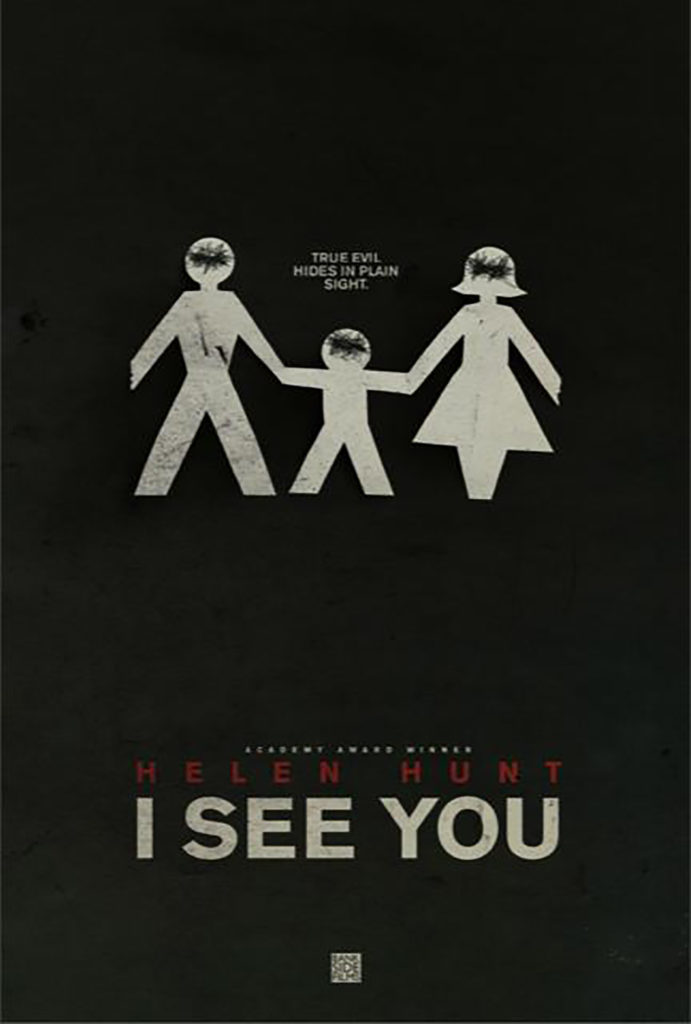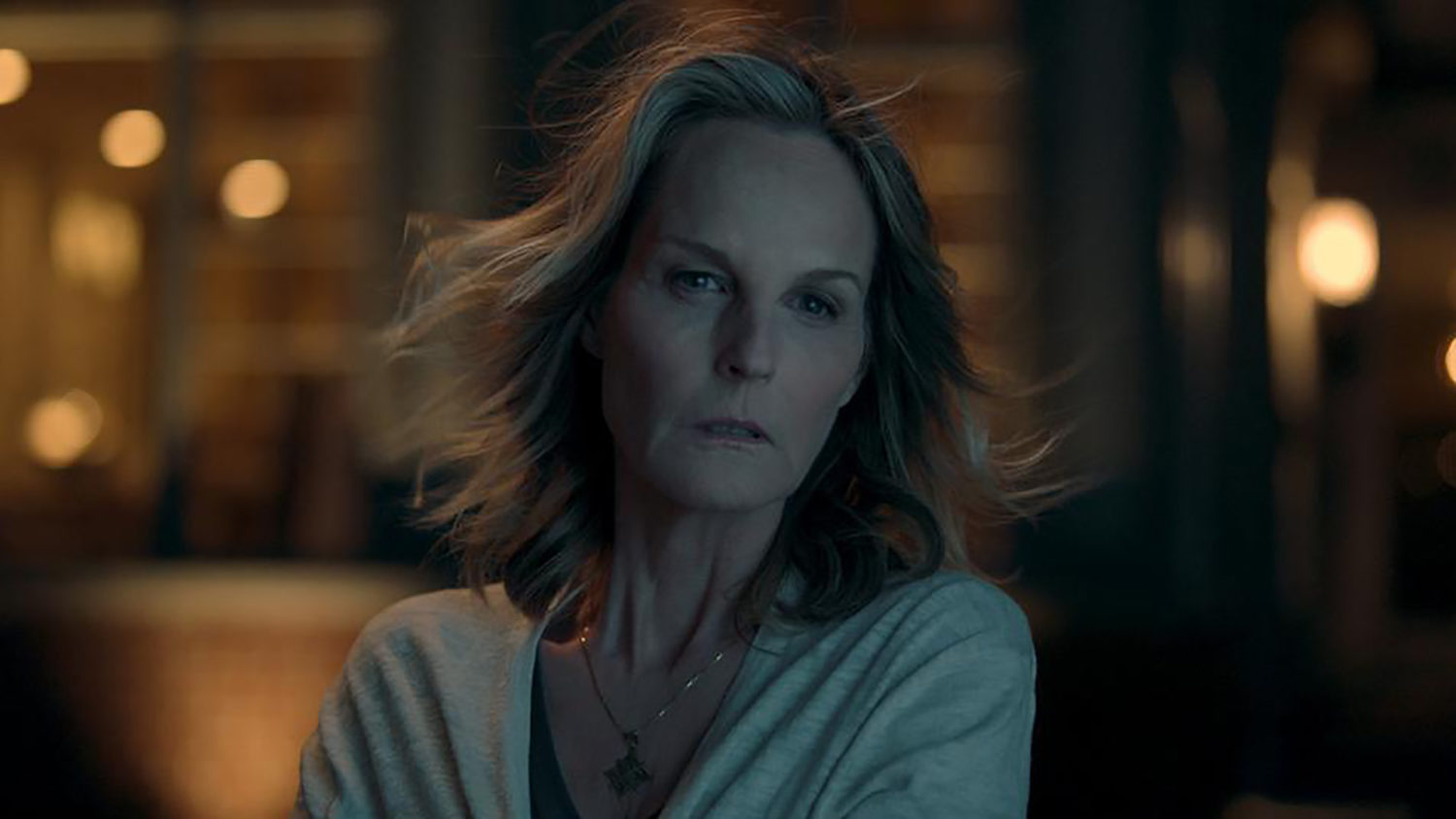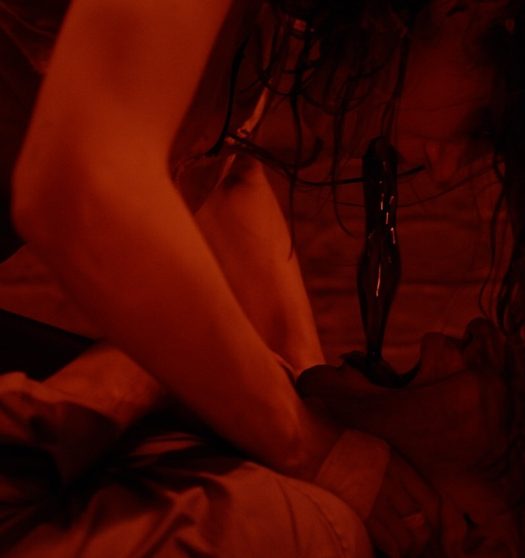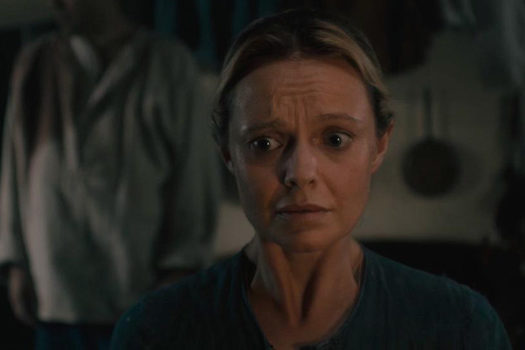I See You follows the Harper family—Jackie (Helen Hunt), Greg (Jon Tenney), and Connor (Judah Lewis)—who are facing a family crisis that has Greg sleeping on the couch and Connor openly hostile to his mother, Jackie. This is happening as Greg, a detective, and his partner Spitzky (Gregory Alan Williams) investigate the disappearance of a 10-year-old boy. As the Harper family unit continues to disintegrate, strange occurrences begin happening at their home, which only adds to already tense family interactions.
Fifty years ago, I See You could have been an Alfred Hitchcock flick.
Change the names above, and opening plot synopsis could be applied to dozens of other supernatural thrillers. But I See You is different. The first half oozes serious True Detective vibes. There’s a troubled home life for the main cast of characters that are ricocheting around a story that involves missing children, an imprisoned serial killer, and apparent supernatural happenings. But there’s a POV change at the movie’s midpoint that answers the first half’s most pressing questions. It does so without deflating the terror and tension. Instead, the big reveal adds to the mystery. Discussing the second half of the film, however, is impossible without spoiling it.
The exciting story is bolstered by strong performances from the entire cast of characters. Hunt portrays a desperate mother and wife trying to hold her family together with painful reverence. Tenney’s Greg has a clear disdain for his wife even as he tries to go through the motions of being a husband for his son’s sake while Lewis’ angsty teenage antics are powerful, raw, and real. Even the supporting cast delivers strong performances that mesh well with that of the top-billed players.
For all its strengths, there is but one flaw with I See You—it’s style. I See You is filled with gorgeous cinematography. Billed as a thriller, I See You crafts well-framed shots that will have audiences scanning the dark recesses for something spooky slithering past. However, often, the style is overpowering. It makes itself noticeable—a reminder that you’re watching a movie. It’s distracting, and frustrating because writer Devon Graye and director Adam Randall have made a compelling film.
I See You is a thrilling rollercoaster from start to finish.
What I See You lacks is finesse. Often, the movie’s style takes overwhelms compelling storytelling. It gets in the way of an otherwise fast-paced thriller. It’s distracting even though it portrays beautiful camerawork. I See You avoids gratuitous violence, obscene nudity, or grotesque, taboo subjects, making the camerawork all that more important. The movie’s compelling wrapping distracts from the all-too-common family drama playing out underneath. Fifty years ago, I See You could have been an Alfred Hitchcock flick. Except I See You lacks Hitchcock’s expertise behind the camera.
I See You is a film that’s both empowered and hindered by its ambition. It’s distinct style, and mid-movie POV change, are captivating to watch as layers of mystery are slowly peeled away. However, not even a diverse cast delivering superb performances or the movie’s enthralling conclusion could elevate the story above its style. That’s not to say I See You is a disappointing movie—it’s not. I See You is a thrilling rollercoaster from start to finish. What is disappointing is how much stronger the film could have been if the style was dialed back in a way that would let the story shine through.
If anything, I See You does one thing well—it lets you know to keep an eye on Graye and Randall.

‘I See You’ Is A Hitchcockian Thriller Without The Finesse [SXSW Review]
Ambitious
I See You is an ambitious movie with compelling performances and an unsuspecting twist.
































October 30, 2019
[…] week we have the return of Academy Award winner Helen Hunt in I See You (review), a new zombie comedy series from Hulu, a mind-altering indie cult flick called Welcome to the […]